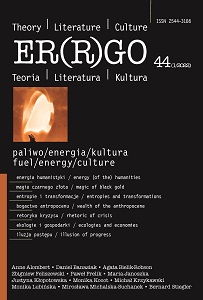Pytania o wartość. Ekonomiczne uwikłania jednostki i języka w „Wyznaniach” Jeana-Jacquesa Rousseau
Questioning the Worth. Economic Entanglement of the Self and Language in Jean-Jacques Rousseau’s „Confessions”
Author(s): Maria JanoszkaSubject(s): Political Philosophy, Economic history, Early Modern Philosophy, 18th Century
Published by: Wydawnictwo Uniwersytetu Śląskiego
Keywords: Jean-Jacques Rousseau; Confessions; economics and literature; autobiography; worth and value;
Summary/Abstract: This article discusses the multiple ways in which the Confessions by Jean-Jacques Rousseau evokes finances, income, loss, and the worth of money itself. Born in the lower class, Rousseau vividly portrays the struggles caused by the 18th-century economy, which became one of the most important topics in his oeuvre. He treats money with intense ambivalence, accusing it of having a delinquent effect on society and each human being, while longing for a steady income with no need for work. On the other hand, he depicts money not as a measure of worth but as an empty sign that can be seen as a metaphor for the conventional nature of language. These observations pose questions how societies form their notion of worth and value.
Journal: ER(R)GO. Teoria-Literatura-Kultura
- Issue Year: 1/2022
- Issue No: 44
- Page Range: 167-183
- Page Count: 17
- Language: Polish

